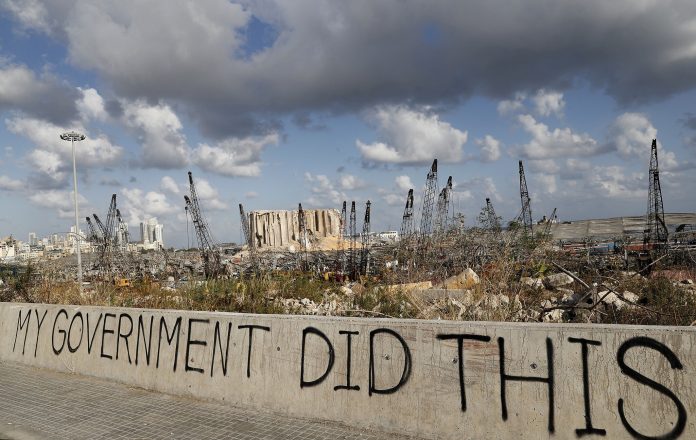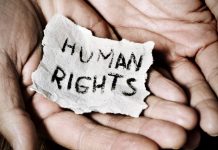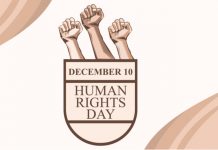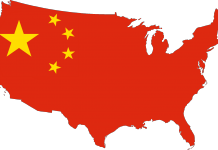This article is written by Shruti Yadav, from Jagran Lakecity, Bhopal. This article talks about the ongoing crisis and human rights violations in Lebanon.
Table of Contents
Introduction
Lebanon is a parliamentary republic in which the President is a Maronite Christian, the speaker of the Chamber of Deputies (parliament) is a Shia, and the Prime Minister is a Sunni. Officially, the law recognises 18 religious groups or confessions. Lebanon is experiencing an unprecedented humanitarian crisis that is driving the country into poverty and compromising population well-being, economic progress, social welfare, and national and regional stability. Lebanon has been facing a capricious political structure and unstable government since 2014. Due to the political impasse, there have been no proper economic reforms, plunging the country and its people into a grave economic crisis. The looming pandemic and the disastrous explosion on 4 August, 2020, the Port of Beirut, which killed more than 200 people while injuring more than 6,500 others, did nothing but aggravate the country’s already worsening situation. The economic plight worsened, with unemployment surging exponentially and the United Nations asserting that more than 55% of the population lived in poverty, approximately double the preceding year’s rate. The degrading state of the economy and the political scenario in the country has increased human rights violations. Government officials held a measure of exemption for human rights abuses, including eluding or manipulating judicial processes. The country suffers from perpetual corruption; therefore, there has been no improvement in the treatment of its citizens or amelioration of human rights conditions. In this article, the author shall be discussing the political imbalance in Lebanon that has led to an economic crisis.
The economic crisis in Lebanon
Lebanon is undergoing a severe and prolonged economic depression. In the light of colossal challenges, continuous policy inaction and the lack of a fully functioning executive authority imperil the already dire socio-economic conditions of the country and a frail social standing. Lebanon has been enduring intensified challenges over a year or two: with its most major financial, economic and peacetime crisis due to COVID-19 and the explosion in the Port of Beirut. Policy responses by Lebanon’s administration to these hurdles have been highly incompetent. The inadequacy is more trivial due to knowledge clefts and quality guidance and a lack of political consensus over competent policy initiatives. The political consensus in denial of a bankrupt economic system benefited a few for so long. In hindsight, Lebanon’s economic crisis was foreseen. The economy was facing several predicaments.
- First, the public sector deficit had reached such elevated levels that a default had become a question of when not if.
- Second, having lent three-quarters of deposits to the government, the banking sector had become functionally insolvent and increasingly illiquid.
- Third, the prolific economy had recorded no growth for an extended period of time due to significant socio-political issues. As the Lebanese pound depreciates, the price of essential goods, most imported, is rapidly increasing, eroding people’s ability to afford food, shelter, and healthcare. The COVID-19 pandemic compounded the poverty and economic hardship many-faced and disproportionately affected marginalized groups, including low-income families, people with disabilities, migrants, refugees, and lesbian, gay, bisexual, and transgender (LGBTQ) people. The government did not develop a timely, robust, or coordinated plan to help.
- Finally, and probably most crucially, the country was in the midst of a political deadlock. Between 2014 and 2016, no President was in office. The creation of the cabinet was delayed several times, and the 2018 legislative elections were held only after a five-year wait. The Hariri government in place when the crisis hit in 2019 became inept to such an extent that it lacked the power to deliver on any of the reforms essential as a prerequisite for foreign support. With a history of continued civil war and multiple conflicts — Lebanon is identified as a Fragility, Conflict & Violence (FCV) State owing to the capricious socio-political turmoil. The socio-economic conditions were frequently put at risk of systemic failings at a national level, with effects resonating globally. In 2020, while GDP per capita fell by around 40 per cent in dollar terms, monetary and financial circumstances remained highly volatile; within the context of a multiple exchange rate system, such a severe contraction is usually a result of constant conflicts or wars.
The perpetual crisis has resulted in surging inflation. On the one hand, the spread of COVID-19 and the doom of a pandemic forced anti-government protesters off the streets. However, on the other, it worsened the economy and highlighted the inadequacy of Lebanon’s social welfare system.
Many businesses unwillingly fired numerous employees or put them on furlough without pay; the gap between the Lebanese pound’s value on the official and black-market exchange rates stretched, and banks tightened capital controls. Growing economic hardship triggered fresh unrest. The government, meanwhile, finally signed a recovery plan that it anticipated would end the economic crisis by expecting the International Monetary Fund (IMF) would harbour support for a bailout by loaning a lump sum amount.
The perpetual political deadlock in the country
Lebanon’s recent past is marred by violent incidents at the hands of both domestic and international powers, which have damaged the population’s psyche and resulted in profound sectarian divides as well as a corrupt, exploitative sectarian political environment. The Lebanese civil war, which lasted from 1975 until 1990, claimed the lives of up to 150,000 people, leftover 100,000 people badly injured and displaced up to two-thirds of the country’s population. The 1982 Israeli invasion of Lebanon and the 2006 Israeli assault on Lebanon resulted in the deaths of nearly 17,000 and 1,109 persons, mostly civilians, and the damage of vital infrastructures, respectively. Since 1976, Syria has had a significant influence in Lebanon. Explosions and assassinations followed the murder of former Prime Minister Rafik Hariri in 2005; since then, ongoing political unrest has continued to compound instability. Lebanon has been embroiled, since late 2019, in a deep economic and financial crisis, intensified by a political deadlock that escalated when Prime Minister-designate Saad Hariri stepped down. The history that led to the political instability in Lebanon is as follows:
- A combination of subsequent mass demonstrations and international pressure forced Syria to withdraw troops from Lebanon. Lebanon enters a new era free of Syrian domination. Hezbollah, an Iran-backed group, enters government for the first time.
- May 21, 2008, after mediation, rival leaders sign a deal in Qatar to end 18 months of political conflict. Parliament elects Michel Suleiman, the army chief, as President.
- In January 2011, Saad al-Hariri’s first government was toppled when Hezbollah and its allies quit because of tensions over the U.N.-backed Special Tribunal for Lebanon.
- Then in 2019, Hariri quit on October 29, against the wishes of Hezbollah. Lebanon is left rudderless as the crisis deepens. A hard-currency liquidity crunch leads banks to impose tight curbs on cash withdrawals and transfers abroad.
- Then in 2020, After two months of talks to form a new, Hariri-led coalition government hit a dead end, Hezbollah and its allies backed Hassan Diab, a little-known academic and former education minister, for Prime Minister.
- March 7, 2020, Diab announces that Lebanon cannot repay a maturing bond and calls for negotiations to restructure its debt.
- After three nights of violent clashes in Tripoli, it was made clear by the then Prime Minister Hassan Diab, that Lebanon will seek to request aid from the International Monetary Fund following the government’s approval of a proposal to recover the economy.
- However, negotiations with the IMF quickly go off the rails. A massive explosion on August 4, 2020, in Beirut’s seaport, caused by the authorities’ corruption, incompetence, and negligence, killed more than 200 people, injured more than 6,000, and left 300,000 without shelter. The blast reduced entire neighbourhoods to rubble, decimated Beirut’s trade and commercial centre, and destroyed half of the restaurants and bars in the greater Beirut area, a vital part of the economy. However, the internal investigation into the causes of the blast is not independent, transparent, or credible.
- Mustapha Adib, a diplomat, is named Lebanon’s new Prime Minister, vowing to make reforms and a deal with the IMF. Nevertheless, Adib bows out after less than a month.
- Hariri, already Prime Minister three times, was named on October 22, 2020.
- Later that month, protesters tried to assault central bank offices in the northern city of Tripoli and Sidon in the south after the national currency fell to a new record low on the black market.
- Days later, the government hikes fuel prices by more than 30 per cent as it reduces subsidies and customers queue for short supplies at service stations. Lebanon’s medicine importers say they have run out of critical drugs and warn of more shortages.
- After nine months of horse-trading, Hariri stepped down on July 15, 2021, saying he could not establish a government.
- Then billionaire businessman Najib Mikati was appointed as Lebanon’s new Prime Minister-designate following binding parliamentary consultations with President Michel Aoun.
- Mikati ran virtually unopposed, receiving 72 votes, with former ambassador Nawaf Salam receiving just one vote.
The lack of political will for amelioration is currently at its highest levels. Depreciation of the Lebanese Pound and the political deadlock coincided. Along with the international community, many experts continue to exert importance on implementing reforms across the public sector, including in the power sector, the port. However, the lack of political will is the leading cause of no steps towards reform, reflecting a dysfunctional political system that has not overcome perpetual political deadlocks. Lebanon’s political system had prevailed slightly since the end of the civil war, as the country kept facing one crisis after another
The political deadlock and economic degradation leading to a humanitarian crisis
Lebanon has been continuously enduring multiple crises, including a massive explosion in Beirut’s port, an economic collapse, rising political instability, and the COVID-19 global pandemic, all of which endangered residents’ fundamental rights. The Lebanese political order neglected to competently address any of these crises, some of which were of their own making. For many people in Lebanon, whether Lebanese, refugees or migrant workers, the prevailing economic disaster and the deteriorating living circumstances come on top of traumatic events and stressful experiences they have already had to face, such as conflict or displacement.
These constant stress factors have contributed to disrupting people’s psychological well-being. Many patients who request MSF mental health services in Lebanon show emotional distress, depression, anxiety and hopelessness. All of this together has contributed to a massive humanitarian crisis and violations of human rights in Lebanon.
- The economic crisis and the COVID-19 pandemic severely affected the medical sector, endangering the ability of hospitals to provide life-saving care. The government’s failure to reimburse hospitals the funds it owes them has thrown Lebanon’s healthcare sector into crisis, compromising its ability to respond to the COVID-19 pandemic.
According to the UN, over half of Lebanon’s population lives in poverty, nearly double the number from the previous year. Approximately 89 percent of Syrian refugees in the nation are reported to be living in severe poverty. A growing number of Lebanese people have been knocking on MSF clinics’ doors over the past year, unable to cover their medical fees anymore – particularly in remote areas. Patients have reported they are struggling to access essential food items, such as meat, chicken and even some vegetables, due to financial issues, which have become a daily reality.
- Anti-government protests, which began on October 17, 2019, against the political establishment’s corruption and incompetence, continued in 2020. Excessive and deadly force was deployed by security forces, including the army, anti-riot police, and legislative police, against predominantly peaceful protestors. The Lebanese Armed Forces (LAF) unjustifiably used excessive force against protesters in Tripoli on April 27, 2020, killing one protester and injuring scores more. Tens of thousands of protesters gathered in downtown Beirut on August 8, 2020, to express their outrage over the Beirut blast and demand accountability. Security forces fired live ammunition, metal pellets, and kinetic impact projectiles such as rubber balls, including health workers, and police deployed excessive quantities of tear gas, including at first aid stations. Several teargas cartridges were fired directly at protesters, striking some in the head and neck. Security forces also threw stones at protesters and beat them: 728 people were injured.
- Attacks on free speech escalated in the wake of the October 17, 2019, nationwide protests, and authorities continued to utilise Lebanon’s criminal defamation laws to arrest and prosecute people for speaking out against government representatives, mainly regarding corruption charges.
- Women proceed to suffer prejudice under 15 distinct religion-based personal status laws. Discrimination includes inequality in access to divorce, child custody, and inheritance and property rights. Unlike men, Lebanese women also cannot pass on their nationality to foreign husbands and children. Lebanon has no minimum age for marriage, and some religious courts allow girls younger than 15 to marry.
- An estimated 250,000 migrant domestic workers, primarily from Ethiopia, the Philippines, Bangladesh, and Sri Lanka, are excluded from Lebanon’s labour law protections. The restrictive kafala (sponsorship) system regulates their status in the country, which ties migrant workers’ legal residency to their employer. The kafala system gives employers excessive control over workers’ lives, leading to an array of abuses, including non-payment of wages, forced confinement, excessive working hours, and verbal, physical, and sexual abuse. During the economic recession, several employers left their employees unpaid or returned airline tickets to their home countries in front of consulates and embassies. After the Beirut bombing, workers said they were discriminated against when it came to getting help.
- Nearly one million Syrian refugees are registered with Lebanon’s United Nations High Commissioner for Refugees (UNHCR). Lebanon’s residency policy for refugees makes it difficult for Syrians to maintain legal status, heightening risks of exploitation and abuse and restricting refugees’ access to work, education, and healthcare. Seventy-eight percent of Syrians in Lebanon now lack legal residency and risk detention and deportation for unlawful presence in the country.
- Lebanon is experiencing an unprecedented humanitarian crisis, the consequences of which would be felt for years. Children are among the most vulnerable parties affected. Even before the Beirut blast, which left at least 183 schools damaged and is estimated to have affected access to learning and education support for children and youth, there were reports that numerous schools would close due to the economic crisis. Many children had been removed from schools due to economic misfortune. Since October 2019, rising child labour rates have been recorded, with a rise in the number of children identified as the sole breadwinners in their homes.
- Child marriage is apparently on the rise in Lebanon, especially among Syrian refugee girls, to relieve financial strains on families.
- In Lebanon, children’s physical and mental health issues are expected to continue to rise. Refugees and vulnerable children face different and distinct psychosocial issues, such as a fear of violence and being targeted by the Lebanese government and neighbouring communities, particularly among Syrian refugee boys.
Conclusion
Lebanon is facing an existential crisis. The best-case scenario is that the country reforms through with available foreign financial support that aids in ending the financial crisis and bringing the economy forward. Efforts should be made so that the 2022 parliamentary elections are held on time, putting an end to the political impasse with a leadership that will take the country to the level of prosperity that it deserves. The Lebanese government must uphold its international treaty commitments, particularly the prohibition on deporting or coercively returning those who are in danger of torture. This means promptly halting arbitrary deportations of Syrians from Lebanon to Syria and enacting measures that ensure Syrian refugees in Lebanon receive the appropriate protection. It should also provide deportation victims with the opportunity to challenge deportation orders issued against them to competent Lebanese legal tribunals, and overturn the decision to deport Syrians who entered Lebanon through unofficial crossing points. The citizens of the country, who bear the brunt of the crisis, are in dire need of some reforms that protect their human rights and alleviate their living conditions. International efforts, led by France, focus on pushing Lebanon to curb corruption and implement reforms. In order to restart delayed discussions with the International Monetary Fund, Lebanon must create a new government. However, politicians, bankers and the residents need to agree on the losses and reforms needed so that the country can stop living beyond its means.
References
- https://www.state.gov/wp-content/uploads/2021/03/LEBANON-2020-HUMAN-RIGHTS-REPORT.pdf
- https://www.amnesty.org/en/countries/middle-east-and-north-africa/lebanon/report-lebanon/
- https://www.worldbank.org/en/news/press-release/2021/05/01/lebanon-sinking-into-one-of-the-most-severe-global-crises-episodes
- https://www.reuters.com/world/middle-east/lebanons-financial-meltdown-how-it-happened-2021-06-17/
- https://www.mei.edu/publications/lebanons-economic-crisis-tragedy-making
- https://moderndiplomacy.eu/2021/03/20/lebanons-political-deadlock-multi-layered-challenges-to-government-formation/
- https://theowp.org/lebanons-elites-continue-political-deadlock/
- https://euromedrights.org/publication/pushbacks-from-cyprus-to-lebanon-leads-to-chain-refoulement-to-syria/
- https://www.icj.org/lebanon-recognize-and-protect-refugees-and-migrants-human-rights-icj-new-report/
- https://www.aljazeera.com/news/2019/8/27/amnesty-calls-on-lebanon-to-stop-expulsion-of-syrian-refugees
- https://tbinternet.ohchr.org/Treaties/CCPR/Shared%20Documents/LBN/INT_CCPR_ICO_LBN_27152_E.pdf
- https://www.hrw.org/news/2018/07/19/lebanon-same-sex-relations-not-illegal
- https://www.aljazeera.com/news/2008/7/11/timeline-lebanon-political-crisis
- https://moderndiplomacy.eu/2021/03/20/lebanons-political-deadlock-multi-layered-challenges-to-government-formation/
- https://www.mei.edu/publications/lebanons-economic-crisis-tragedy-making
- https://www.nytimes.com/2021/07/05/world/middleeast/lebanon-economic-crisis.html
- https://www.hrw.org/world-report/2021/country-chapters/lebanon
- https://reliefweb.int/report/lebanon/overlapping-crises-lebanon-increase-needs-and-worsen-access-care
- https://www.hrw.org/news/2021/01/13/lebanon-sharp-decline-human-rights
- https://www.usip.org/publications/2021/03/lebanon-melts-down-can-it-avert-total-collapse
Students of Lawsikho courses regularly produce writing assignments and work on practical exercises as a part of their coursework and develop themselves in real-life practical skills.
LawSikho has created a telegram group for exchanging legal knowledge, referrals, and various opportunities. You can click on this link and join:
https://t.me/joinchat/J_0YrBa4IBSHdpuTfQO_sA
Follow us on Instagram and subscribe to our YouTube channel for more amazing legal content.
 Serato DJ Crack 2025Serato DJ PRO Crack
Serato DJ Crack 2025Serato DJ PRO Crack











 Allow notifications
Allow notifications


